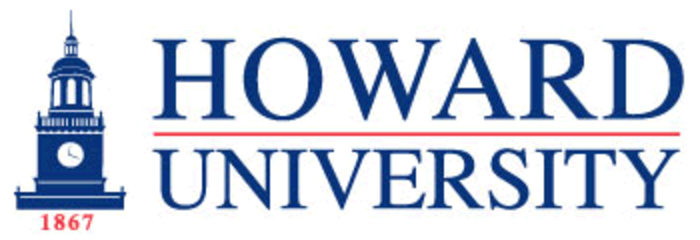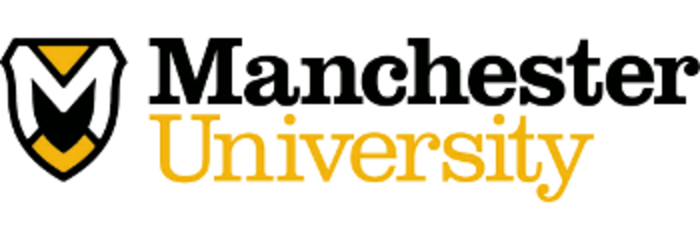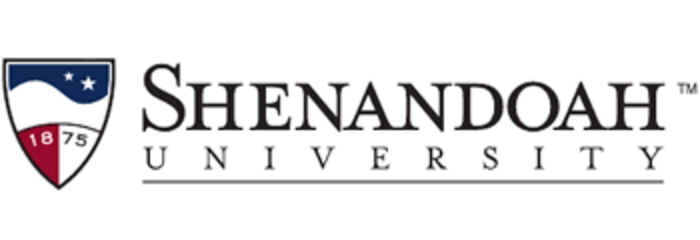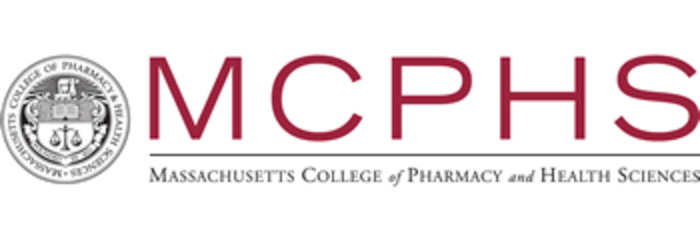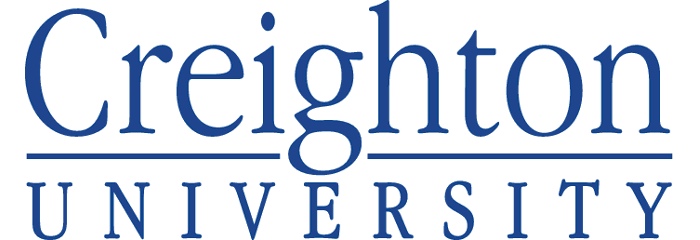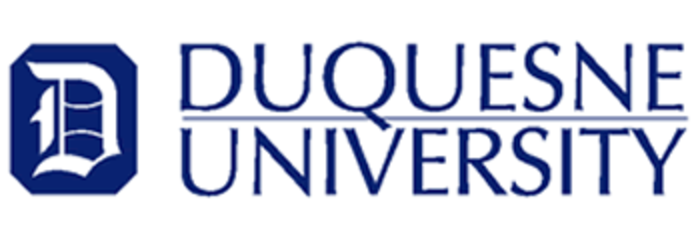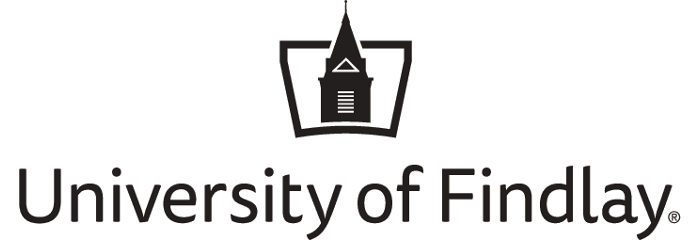2025 Best Online Pharmacy Schools
Our list of online pharmacy schools each host an online doctorate pharmacy program to advance your expertise in the pharmaceutical field. These programs blend advanced pharmacology, clinical practice, and patient-centered care to equip you with the skills needed for impactful careers in healthcare. Graduates of an online pharmacy school can find opportunities in leadership, research, and specialized practice areas.
Key Takeaways:
- With a median earnings figure of $135,124, Howard University ranks first for salary outcomes, positioning graduates for high earning potential in the field.
- Creighton University's graduation rate of 78% is the best on our list.
- Massachusetts College of Pharmacy and Health Sciences has a low student-to-faculty ratio of 10:1, offering a personalized learning experience.
Our ranking methodology at OnlineU evaluates programs based on popularity, or more specifically, online enrollment at the graduate level. This way, you can find the most popular online pharmacy technician schools across the country.
2025 Best Online Pharmacy Schools
| Rank | School | Salary Score | Median Earnings | B+ | $135,124 | 339 | #1
Online degree: Why we like them: Howard has a pharmacy technician school online that features a strong earning potential, with graduates reporting a median salary of $135,124, placing it in the top 30% for earnings on a national scale. The Non-Traditional Doctor of Pharmacy (NTDP) offers an innovative, fully online pathway for practicing pharmacists, allowing completion in two to three years. The curriculum focuses on integrated pharmacy care, including vital courses like Pathophysiology, Therapeutics, and Pharmacology and extensive experiential education opportunities. #2
Online degree: Why we like them: Manchester offers a Doctor of Pharmacy as part of its online pharmacy school. It's 90% online, making it an ideal choice for students seeking flexibility in their education. With a median salary of $134,745, the pharmacy program ranks in the 68th percentile for earning potential with a B+ Salary Score. The Pharmacy Distance Pathway requires 144 credit hours over four years, combining asynchronous coursework with in-person clinical experiences. Accredited by the Accreditation Council for Pharmacy Education, students have access to resources that support their learning and professional development. #3
Online degree: Why we like them: SU offers a Nontraditional Doctor of Pharmacy, an all-online program tailored for licensed pharmacists seeking to advance their education. With graduates reporting a median salary of $133,748, SU ranks in the top 38% for earnings potential nationwide. The NTDP features a curriculum of 53 credit hours, focusing on pharmacogenomics and advanced information technology, facilitating a flexible study environment that accommodates full-time work commitments. Students benefit from self-paced coursework and minimal on-campus presence, fostering engagement through recorded lectures and team-based learning formats. #4
Online degree: Why we like them: MCPHS offers a Doctor of Pharmacy for U.S.-licensed pharmacists seeking career advancement. With median earnings of $132,849 and a graduation rate in the top 14%, MCPHS emphasizes a strong return on investment. This part-time online program begins with an in-person orientation and spans five semesters, featuring 27 coursework and 16 credits of experiential education. Students experience a three-phase curriculum covering Pharmaceutical Care Principles, an extensive Pharmacotherapeutic Sequence, and clinical rotations in crucial areas such as Ambulatory Care and Internal Medicine. #5
Online degree: Why we like them: CU stands out nationally for academic achievement and post-graduation success. CU boasts a median earning potential of $130,317 for its pharmacy degree and an overall 78% graduation rate. The Doctor of Pharmacy program offers an innovative curriculum that prepares students for patient-centered care through rigorous coursework and practical experience. Students can choose from on-campus, hybrid, or a unique distance pathway, ensuring flexibility in their education while exploring opportunities for dual degrees with an MBA or MS in Pharmaceutical Sciences. #6
Online degree: Why we like them: DU offers a pharmacy doctorate online with competitive median earnings of $123,992. The program, designed for online enrollment over four years of study, requires 142 credit hours and includes limited on-campus attendance. Accredited by the Accreditation Council for Pharmacy Education, it ensures eligibility for licensure in all 50 states. Students gain practical experience through 1,784 hours in various settings, with options for concentrations like Acute Care and Entrepreneurial Pharmacy while simultaneously earning a Bachelor of Science in Pharmacy Foundations. #7
Online degree: Why we like them: SJFC offers an online pharmacy doctoral program designed for success, with earnings well over six figures — $129,416. The program features a four-year curriculum accredited by the Accreditation Council for Pharmacy Education, combining online courses with valuable clinical rotations. Additionally, SJFC provides a unique joint Pharm D/MBA pathway, enhancing career prospects. Scholarship opportunities, including the Lucy P. Malmberg Pharmacy Endowed Scholarship, further support affordability in this rigorous academic environment. #8
Online degree: Why we like them: UF offers an innovative Distance Doctor of Pharmacy, blending online coursework with on-campus immersions and experiential learning. This four-year program requires 142 credit hours, preparing students for the NAPLEX/MPJE exams. With a competitive salary outlook for graduates of around $125,584, the program also features dual degree options with an MBA or MS in Health Informatics. Prospective students should hold a bachelor’s degree or 60 credits and have a preferred GPA 3.0 for admission consideration. Overview of Online PharmD DegreesIn order to become a licensed pharmacist, students must complete a PharmD program, which is considered a professional doctorate program on the same level as those for medical doctors and dentists. The advanced coursework in this type of doctoral program is designed to prepare students to pass the licensing exam. Topics include biochemistry, pharmacology, medicinal chemistry, pharmacokinetics, pathology, immunology, and more. PharmD students are also required to complete a specified number of clinical practice hours. Can You Really Get Your Doctorate in Pharmacy Online?Yes, it is definitely possible to attend an online pharmacy school in order to earn your PharmD. Several pharmacy graduate programs at accredited colleges and universities have created online pharmacy schools. Students complete coursework online, and with the help of program coordinators, they can find opportunities to complete their clinical practice hours at facilities near their home. Some programs offer nonclinical pharmacy classes online, some require students to attend brief workshops on campus, and others are considered hybrid, meaning coursework is delivered through a combination of online and on-campus learning activities. Students should research this aspect of each program thoroughly before selecting the best one to suit their needs. How Long Are Online PharmD Programs?Although many online PharmD programs are designed to be completed in four years of part-time study, some students require up to six years to complete all graduation requirements. Most of these doctorate programs are geared toward students who are working full time, so there are often only two classes per term. Also, some students opt for additional one- or two-year residencies after completing graduate school if they want to specialize in a particular subfield of pharmacology, such as geriatrics, cardiology, or infectious diseases. However, some online pharmacy degree programs allow enrollees to take full-time course loads and graduate in two to three years. Programs typically require the completion of 60-70 credit hours in total. The first half of these credits are completed in the program's first two years. They are typically online "didactic" classes, meaning coursework involves reading texts and materials, viewing or reading lectures, and participating in online activities with classmates. The other half of the credits are devoted to experiential clinical practice conducted at pharmacies or other relevant healthcare facilities, and students often need two or more years to fulfill the required number of pharmacy practice hours. What's the Difference Between a PharmD Degree and a PhD in Pharmacology?A PharmD is distinctly different from a PhD in pharmacology. While both are doctoral degrees, they prepare students for different career paths. The PharmD degree is the right choice for students who want to become licensed, practicing pharmacists. The PhD in pharmacology is the best choice for students who want to enter the field of pharmacological research and pharmaceutical development. While there are some similarities in the topics covered in the coursework for each online pharmacology degree, a pharmacology PhD program is more focused on research and requires a dissertation.
Pharmacy Career PathsBecoming a licensed pharmacist is just one of several career options for individuals interested in the pharmaceutical industry. The following are some of the career paths students can choose from, along with data from the Bureau of Labor Statistics (): Pharmacists Annual Median Salary: $132,750 Job Growth: 3% prepare prescriptions and advise patients concerning any potential side effects or drug interactions they may experience while taking medication. They also supervise pharmacy technicians and interns, and they may have inventory management duties for the pharmacy in which they work. Pharmacists must have a professional, post-graduate doctoral degree and a professional state license in order to practice. Pharmaceutical Researchers Annual Median Salary: $99,930 Job Growth: 10% The BLS classifies PhD-level , and they are involved in the development of new medications. They may conduct clinical trials and testing of new medications on animals and humans. Researchers may also work to improve the drug manufacturing process. The minimum educational requirement for pharmaceutical researchers is a bachelor's degree in either pharmaceutical sciences, chemistry, or another related field. Many researchers go on to complete a master's or PhD in pharmacology for advancement in their careers. Pharmacy Professors Annual Mean Salary: $131,440 Job Growth: 5-6% Professors, or , working in four-year colleges and universities typically need a PharmD and several years of work experience as a pharmacist in order to train future pharmacists. At this level, educators usually begin as assistant professors, and then they advance to associate professors and finally full professors. Types of PharmacistsAside from pharmacy professors and researchers, there are four : The most common occupation is a community pharmacist. These are the individuals working in your local drug store that dispense medication. They may provide customers with information about over-the-counter medication, address concerns about side effects, and — in some cases — they may administer vaccines or flu shots. Behind the scenes, you'll find the pharmaceutical industry pharmacists who work for the drug companies. This role includes conducting drug trials through research and development while maintaining quality assurance and adhering to safety regulations. If you desire to work in a health care setting, like a hospital, clinical pharmacists recommend medication directly to patients. They also keep track of doses and medication schedules. Similarly, consultant pharmacists work with hospital administrators to recommend medications and provide services that may improve their pharmacy services. Pharmacy Career Certification and Licensing RequirementsAll 50 US states require pharmacists to have licenses in order to practice. Upon completing an online PharmD program, graduates must take and pass two exams to obtain a license to practice in the state where they reside. The required exams are the (NAPLEX), which tests prospective pharmacists on the skills and knowledge required for the career, and the (MPJE), which tests prospective pharmacists on the pharmacy laws specific to the state in which they are seeking licensing. Some pharmacists may also choose to obtain certification in advanced areas of specialization. Certification in such areas as oncology, nutrition, pediatric pharmacy, nuclear pharmacy, and others are offered through the . Applying to Online Doctor of Pharmacy ProgramsCompetition for enrollment in the best PharmD programs is high. from the American Journal of Pharmaceutical Education indicate that approximately 15,000 new students have entered doctorate pharmacy programs in each of the most recent academic years, and approximately 14,000 of those have earned PharmD degrees. This same report, compiled from data contributed by the 144 US schools offering pharmacy degrees, shows that these schools received about 50,000 applications for PharmD programs. The admission requirements for most online pharmacy programs stipulate that applicants must have earned a pre-pharmacy bachelor's degree or something similar from an accredited, four-year college or university. Many programs also require applicants to have taken a number of prerequisite courses before enrolling in the PharmD program. Some of the more common prerequisites are biology, chemistry, physics, organic chemistry, statistics, and calculus. Additionally, students must have earned a GPA of 2.0 or better in these courses to qualify. When applying for an online doctor of pharmacy program, applicants must submit an application form. The following items may also be requested:
Importance of AccreditationPrior to enrolling in an online pharmacist program, prospective students should confirm that the program has been accredited by the (ACPE). A PharmD program must undergo an extensive, multi-year evaluation to become accredited. Accreditation ensures consistency across all programs by documenting that each curriculum, faculty, and learning outcomes meet the same national standards. Choosing an ACPE-accredited program is important for several reasons. Not only does it assure students they're enrolled in a credible degree program that meets high academic standards, it is a requirement for obtaining pharmacist licensure. For a list of accredited online pharmacy programs, students can visit the or the . Is Getting an Online PharmD Degree Worth It?While obtaining a PharmD degree is a requirement for a career as a licensed pharmacist, students may consider multiple factors when deciding whether to pursue this degree online. Students should weigh the various advantages and disadvantages of online PharmD programs in light of their own circumstances, resources, and goals. Potential Benefits
Potential Drawbacks
Student Reviews of Online Pharmacy ProgramsD’Youville University Pharmacy Program – A Warning to Future Students As a former student in D’Youville’s PharmD program, I feel compelled to speak out so others can make informed decisions before enrolling. What I experienced over the course of my time in this program was not just disappointing; it was disheartening, inequitable, and at times, deeply unethical. Despite promising equal support for all students, the school consistently treated its online students as second-class citizens. Our lectures... Read More Accommodations for disabilities were ignored when it mattered most. I was granted extra time on exams due to a documented medical diagnosis, yet this was flat-out denied during critical in-person testing. When I raised this issue, it was brushed aside with no explanation, no apology, and no alternative, a direct violation of my legal rights and a personal betrayal of trust. Worse, the school failed to secure clinical rotation sites, something they promised when we enrolled. When placements fell through, we were told we’d simply be delayed an entire year in graduating (as if that was some "minor" inconvenience). This threat hung over our heads while we scrambled to fix a problem that wasn’t ours to solve. But the most devastating moment came when I was falsely accused of cheating, based on a single letter from a student I had previously refused to help cheat. No evidence was ever provided. None of the other students named were even questioned. I was dismissed, and when I appealed, I was judged by a biased panel that included faculty with personal conflicts of interest. I was never given a fair chance to defend myself. This program does not protect its students. It does not listen. It does not lead with integrity. And it does not deserve the trust of students who give everything to pursue a career in pharmacy. If you are considering D’Youville, ask the hard questions. Demand transparency. Speak to current students in all learning tracks, not just the ones hand-picked for tours. You deserve an education built on respect, support, and fairness. I sincerely hope future students never have to endure what I did. Review Date: 6/13/2025 Would Recommend: No Helpful for Career: No Incoming pharmacy year 1 student originally from Texas. Xavier university of Louisiana feels like home. So many welcoming people at this university that are always willing to help. The university offers a great amount of diversity and culture. Cannot be happier with my decision of choosing this university to enter my future career. Review Date: 9/16/2016 Would Recommend: Yes Helpful for Career: Yes There are many pros and cons to the distance pathway PharmD program at Creighton University. The obvious pro is that you don't have to move to attend classes on campus, which is perfect for those students who have families and/or jobs and are unable to move. Another pro is that the distance cohort becomes a tight knit group, even though we are spread out all over the US. Additionally, the school has many supports in place for distance students. The cons consist of missing out on campus activities,... Read More Review Date: 10/20/2013 Would Recommend: Yes Helpful for Career: No Awesome opportunity provided by UCdenver for me to complete a lifelong desire of post graduate education as a working adult. This program has highly qualified instructors. Tremendous improvements in technology used to deliver online lectures last couple of years. provides accommodation for clinical rotation sites a well as placement in and around Denver.; for any student willing to come to Colorado CONS As a distant online student, I feel I would have benefited from annual program review/advise before... Read More Review Date: 11/20/2015 Would Recommend: Yes Helpful for Career: No The online pharmD program is extremely challenging but opens a door to many that would otherwise be impossible. The cost and annual trips to Omaha for labs are a negative. The quality of the education is outstanding. Review Date: 4/2/2014 Would Recommend: Yes Helpful for Career: No UF was a great school! Love the camaraderie and academics are top notch. Review Date: 8/19/2015 Would Recommend: Yes Helpful for Career: Yes It's a great school with a diverse student population. It's known in Hawaii for its dental, medical and pharmacy schools. Review Date: 1/3/2017 Would Recommend: Yes Helpful for Career: Yes Wingate University is a great place to further your education. The staff and professors are highly experienced and knowledgeable, they do their best to help students as much as possible. After viewing various colleges, I knew that Wingate University was the school for me with small classroom sizes, which allow for more professor and student interactions. Review Date: 6/24/2017 Would Recommend: Yes Helpful for Career: No I am blessed to be admitted into UMKC School of Pharmacy class of 2019. It is going o be a hard program, i am station at the satellite site in Columbia, Mo so the learning experience will be a whole new ball game. Pros- the teachers care, small class size and alot of opportunities to practice material. Cons- out of state, new area, video teaching instead of classroom-based teaching Review Date: 8/8/2015 Would Recommend: Yes Helpful for Career: No Ferris State University is a great school to pursue a degree in pharmacy. The faculty is personable and genuinely cares about the success of every student. The pharmacy curriculum spans four years and can seem overwhelming at times. However, many of the staff members understand exactly what the students are going through and will dedicate their spare time to helping students cope with the stresses. Ferris State also offers the dual enrollment Pharma/MBA which I am currently enrolled in. The program... Read More Review Date: 6/24/2017 Would Recommend: Yes Helpful for Career: No The University of South Florida College of Pharmacy is overall a great program and I am honored to be part of this school! Review Date: 8/6/2014 Would Recommend: Yes Helpful for Career: No Cedarville University has great graduate programs and helps students find jobs in whatever areas they are interested in. Review Date: 12/15/2014 Would Recommend: Yes Helpful for Career: No I absolutely love the school of pharmacy at USF. I think the curriculum and professors are amazing. Everyone wants to see you excel and do your best. The faculty and staff are always available to assist you when needed. The only complaint I have is regarding the surrounding neighborhood, however, that is outside of the university's control. The university actually warns new students about certain areas when shopping for apartments, which I found extremely helpful since I was completely relocating... Read More Review Date: 1/1/2014 Would Recommend: Yes Helpful for Career: No I feel that the pharmacy program at Samford University is very high in quality of education due to their great faculty and staff. The atmosphere not only in the pharmacy department, but throughout the entire campus is very inviting and welcoming. Review Date: 7/5/2013 Would Recommend: Yes Helpful for Career: No A very expensive program, but in my case, so worth the effort. The job satisfaction I expect will be worth it all. Review Date: 7/7/2014 Would Recommend: Yes Helpful for Career: No Pros of this program are that it's a new program with a lot of innovative ideas. In addition, it allows us to have room to establish what has worked in other programs and what has not worked to ensure a better program. Cons of this program are that because it is so new, there are areas that need to be adjusted and improved. Review Date: 6/17/2014 Would Recommend: Yes Helpful for Career: No Pros Inter-professionalistic approach into health care; location in regards to major hospitals; new school with new technology Cons USF COP is still making a name for itself so still needs more exposure Review Date: 8/8/2013 Would Recommend: Yes Helpful for Career: No University of Florida College of Pharmacy Doctor of Pharmacy program offers an excellent clinical track for those interested in clinical pharmacy. It provides instruction from top notch clinical pharmacists in an interactive learning setting. It grooms students to have high level of expertise coupled with pristine attention to detail. The organization of the administrative office can use some improvement for the sake of the students. For those who are not interested in clinical pharmacy track the... Read More Review Date: 3/27/2017 Would Recommend: Yes Helpful for Career: No I absolutely love the pharmacy program and the professors at University of South Florida. The only con I have is the area surrounding the campus, but that is out of their control. Review Date: 12/29/2013 Would Recommend: Yes Helpful for Career: No Studying pharmacy at Nova Southeastern university has its pros and cons. Pros: Area of south Florida is nice and full of things to do. Its close to home to those of us that are from Miami. The college is mixed in with other health professionals so we can interact with other students in other programs. Workload is manageable and many professors are caring and approachable. Cons: Overcrowded or unavailable study areas become a huge hassle around test time. Some of the faculty is not great at realizing... Read More Review Date: 7/12/2013 Would Recommend: Yes Helpful for Career: No Why Trust Us?27 Data Researchers 60,000 Degrees Researched Annually 20,000 Hours Spent on Research Annually Launching Rankings Since 2009 Related Articles |
|---|


